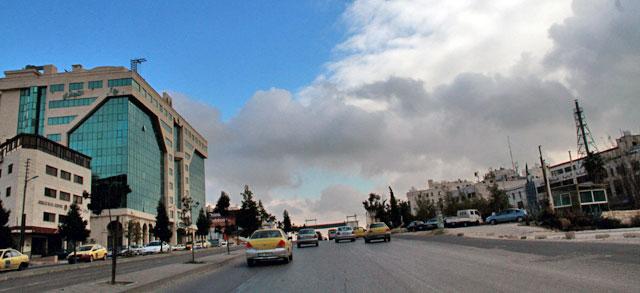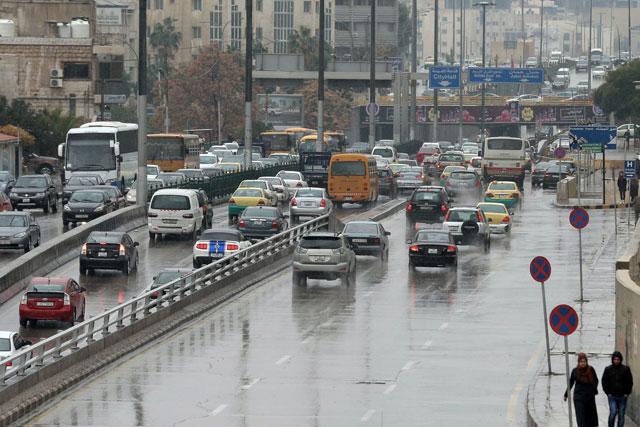You are here
Effect of wet air mass continues today — JMD
By Merza Noghai - Dec 22,2014 - Last updated at Dec 22,2014

AMMAN — A wet air mass started affecting the Kingdom on Monday morning and will continue until Tuesday night, according to the Jordan Meteorological Department (JMD).
“Temperatures in Amman on Tuesday will range between a high of 13°C and a low of 4°C,” JMD Director General Mohammad Samawi said, adding that rainfall is expected in the morning.
Samawi said the JMD expects frost formation in hilly areas and badia regions, urging farmers to take precautionary measures to protect their crops.
“Fog is also expected on Tuesday morning in hilly areas, Amman and Queen Alia International Airport,” the meteorologist told The Jordan Times over the phone.
During the Christmas holiday and the weekend, stable weather conditions are expected to prevail in the Kingdom, Sanawi said, noting that it will be relatively cold in hilly areas and fair at the Dead Sea and Aqaba.
Commenting on rumours about a heavy snowstorm hitting the Kingdom at the end of the year, he said weather maps suggest no snowstorm at that time, but a chance of showers on Saturday and Sunday.
“There’s a chance of rainfall in the first week of January, with cold weather conditions,” Samawi said.
Monday marked the winter solstice in the northern hemisphere and the start of marbaniyeh in Jordan — the 40 coldest days of winter.
During marbaniyeh, the local name given to the 40 coldest days of winter, the country typically witnesses several depressions, while average temperatures in the capital range between a maximum of 12.7ºC and a minimum of 3.8ºC.
Related Articles
AMMAN — Tuesday, December 22, marks the winter solstice in the northern hemisphere and the start of marbaniyeh in Jordan — the 40 coldest da
AMMAN — Today marks the winter solstice and the start of marbaniyeh in Jordan — the 40 coldest days of winter — the Jordan News Agency, Petr
AMMAN — As Thursday marks the winter solstice and the start of marbaniyeh in Jordan, temperatures will be eight degrees above their annual a














